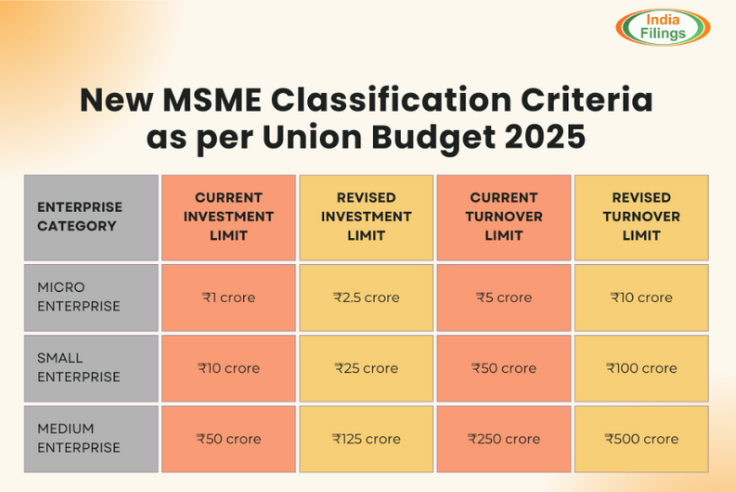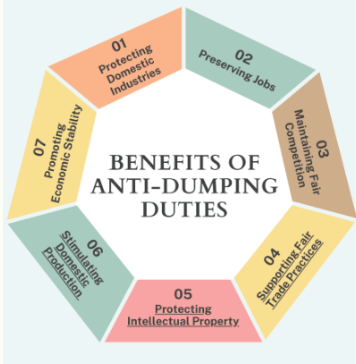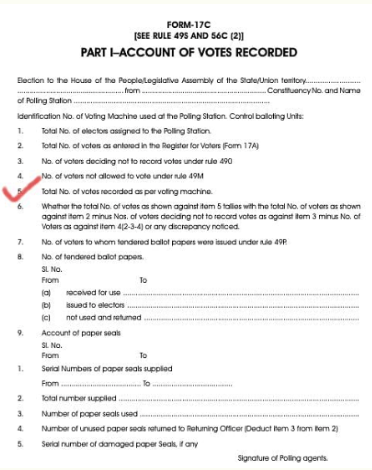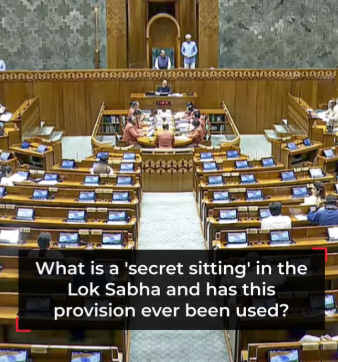Daily Current Affairs | March 24 2025
Important Topics from Current Affairs : 1) MSME Definition Revised 2) Anti-Dumping Duties 3) Electoral Reforms and Form 17C 4) Secret Session of Parliament 5) UNESCO’s Challenger 150 Initiative
Jumbo IAS
3/24/20255 min read
1) MSME Definition Revised
The government has notified significant revisions to turnover and investment criteria for classifying MSMEs that will take effect from April 1.
During her budget speech, Union Finance Minister Nirmala Sitharaman had announced new classification criteria for MSMEs, with investment and turnover limits for the classifications proposed to be increased to 2.5 times and two times, respectively.


2) Anti-Dumping Duties
India has imposed anti-dumping duties on five Chinese goods, including aluminium foil, to protect domestic industries from the impact of cheaper imports from the neighbouring country.
Anti-dumping duties are taxes imposed on imported goods in order to compensate for the difference between their export price & normal value, if the product is being dumped.
These are levied after anti-dumping probes.


Anti-Dumping Probes
These are conducted by countries to determine whether domestic industries have been hurt because of a surge in cheap imports.
A product is considered to be dumped when a producer exports his product at a price lower than its value in its domestic market.
In India, these investigations and trade action is taken by Directorate General of Trade Remedies(DGTR) under Commerce Ministry.
Article 6 of GATT under WTO allows for these duties.
Countervailing Duties (CVDs)
Anti-dumping and countervailing duties are trade remedies designed to protect domestic industries from unfair trade practices.
Anti-dumping duties target imports sold at prices below their normal value (dumping), while Countervailing duties address imports benefiting from government subsidies.
CVDs are also often initiated by domestic industries claiming that they are being harmed by subsidised imports.
The importing country's authorities investigate the subsidy claim, determining if a subsidy exists and if it's causing material injury to the domestic industry.
The WTO has rules governing the use of countervailing measures, ensuring that they are used fairly and transparently.
3) Electoral Reforms and Form 17C
In 2024, the Supreme Court considered a petition by the Association for Democratic Reforms (ADR), seeking the publication of the first part of Form 17C, within 48 hours.
The EC flatly refused, saying that it was only legally mandated to share this form with polling agents representing electoral candidates, and not with the general public or the media.


About Form 17C
Form 17C is a two-part document mandated under the Conduct of Election Rules, 1961, and must be filled at every polling station.
It has 2 parts :
Part 1 - Booth-wise data on votes recorded. Filed by Presiding Officer after polling.
Part 2 - Booth-wise data on results of counting. Filed by Returning Officer on counting day
With over 10.5 lakh polling stations in 2024, the volume of data involved is immense.
Why Public Release is Being Demanded by ADR ?
Ensure booth-level transparency
Cross-verify final vote counts with recorded turnout
Prevent post-poll manipulation or errors
Increase public trust in EVM-based elections
Arguments Given by ECI
No Legal Obligation - ECI maintains that it is not legally obligated to publish Form 17C online. It is only required to share it with polling agents present at the booth.
Data Misuse - The EC warns that online publication could lead to morphing of images, misinformation, and public chaos.
Exclusion of Postal Ballots - Form 17C does not include postal ballots, which could add further confusion if published without context.
Logistics and Practical Difficulties
4) Secret Session of Parliament
The proceedings of Lok Sabha, the lower house of Parliament, are live streamed on Sansad TV and a record is maintained on the government’s Digital Sansad website.
But India’s constitution has carved out a provision to hold secret sittings, if required.
There has been “no occasion” when a secret sitting of the House has taken place
While some opposition members wanted a secret sitting to discuss the India-China conflict in 1962, Nehru did not agree.


Secret Sitting
The Constitution of India does not directly mention secret sittings, but it empowers Parliament to frame its own rules under Article 118.
The provisions for holding secret sittings are embedded in Chapter 25 of the ‘Rules of Procedure and Conduct of Business in Lok Sabha’.
The Leader of the House needs to put forward a request to the Speaker, who will then fix a day or a part of it for “secret sitting” of the House, according to Rule 248, subclause one.
Features of Secret Sessions
No visitors/outsiders are allowed in chamber, lobby, or gallery.
Proceedings are recorded and published only with the Speaker’s approval.
Any unauthorized disclosure is considered a gross breach of privilege.
Article 361A provides legal protection for the publication of proceedings of Parliament and State Legislatures, ensuring that individuals or media houses cannot be sued for publishing accurate reports of these proceedings
The protection does not extend to reports of secret sessions of Parliament or State Legislatures.
Only with the Speaker’s consent and a passed motion can such information be officially disclosed.
5) UNESCO’s Challenger 150 Initiative
A team of scientists may have discovered dozens of new species, including giant sea spiders, octopi, and corals on the newly exposed seafloor left behind by the enormous A-84 iceberg that broke away from the George VI Ice Shelf.
The break-away of the 510-sq-km iceberg — around two-and-a-half times the size of Kolkata — gave access to an underwater world that was previously beyond human reach.
The mission was part of Challenger 150, a UNESCO-endorsed global initiative for deep-sea research.


Challenger 150
The Challenger 150 programme is part of the UN Decade of Ocean Science for Sustainable Development (2021–2030).
It underscores the role of multilateral scientific collaboration in exploring and conserving the deep ocean.
The initiative aligns with global sustainable development goals, SDG 14 (Life Below Water).
Key Findings Under George VI Ice-Shelf
New Species :
Giant phantom jellyfish
Octopi, vase-shaped sponges (possibly centuries old), and sea spiders
New Ecosystems :
Discovery of large corals, sponges, icefish, and giant sea spiders. Ecosystems survived despite being cut off from sunlight and surface nutrients for centuries.
The presence of complex life in absence of known nutrient sources suggests unknown nutrient transport pathways, opening new avenues for research.
George VI Ice-Shelf
Situated in George VI Sound, separating Alexander Island from Palmer Land, adjacent to the Bellingshausen Sea in the Southern Ocean.
Its governance falls under the Antarctic Treaty System, with active research led by countries like the UK and USA.
It is rich in floating ice shelves, subglacial ecosystems, and complex underwater geography


